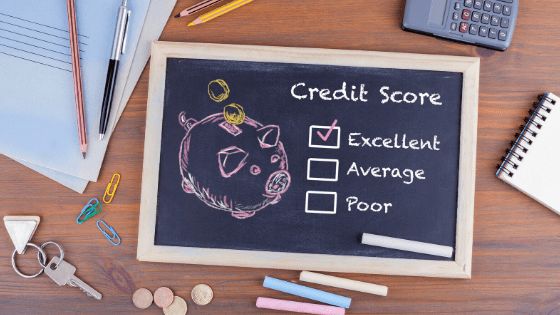Apart from buying your dream house, a vehicle is the second-largest purchase you can make. Not only does that come with more responsibilities, but it is also scary. Purchasing a vehicle requires a substantial amount of money that may seem difficult to attain. But there are financial service providers who can assist you with your payments, and your credit score.
Having a good credit score is an important part of your personal financial management, and you always need to keep track of it. Your score has the biggest impact when you’re looking for finance, so you need to ensure it represents you in a good light.
A good rule of thumb is to review your credit record at least once a year. This will ensure you are aware of any discrepancies that may arise. Now, you may be asking yourself how to finance a car? But what you should be asking is how you can make your credit score work in your favour when looking for a great deal for a car loan. A positive credit score allows lenders to trust you with auto finance on new wheels. Therefore, if you’re planning on applying for finance for your car, it would be beneficial for you to check it more frequently.
Although you have to pay to see your credit record more than once a year, there are financial businesses which allow you the opportunity to check your score whenever the need arises.
When planning on purchasing a car, these are additional steps you need to follow:

Know how to check your credit score
Firstly, you need to understand your score and know where you can access it from. There are four leading credit bureaus in South Africa: Transunion, Experian, Compuscan, Xpert Decision System (XDS). You can access your credit report through these credit bureaus for free once per year. As mentioned previously, if you need to check it more than once, then you can use a financial website that gives consumers free access to your credit score and your report. You should note that a credit score and a credit report are two different things.
- Your credit report is a review of your financial management and reliability.
- Your credit score is a calculation that lenders use to evaluate your risk.
Understanding the two will help you make more informed decisions, and it will help you understand what you’re looking into your credit report.
What you need to look out for when checking your credit score
Look out for any misinformation on your report that can have an impact on when you get car finance. When reviewing your credit report, you need to take note of the following:
Check that all of YOUR accounts are listed
The first thing you need to do when checking your report is to ensure that all the accounts listed are yours. Check that they currently belong, or have belonged to you in the past. If you are unsure of any account, dispute it so that it’s removed from your credit record.
Check your personal information
Make sure all your personal information is correct; your name, address, birth date, phone number, current and past employers. This will ensure that everything goes smoothly when you’re looking for vehicle finance or any other loan from a financial service provider.
Check all your inquiries
An inquiry is when an authorised financial service provider asks the credit bureau to check your report when you apply for a car or personal loan. But there are two different types of inquiries; hard and soft inquiry. A hard inquiry happens during the decision-making process, where lenders are still deciding whether they can give you the amount you need. A soft inquiry is when you or a lender checks your credit report for pre-approval. However, a soft inquiry does not appear on your credit report, whereas a hard inquiry stays on your report.
One thing to remember is that you need to be aware that every time you apply for a loan, there will be an inquiry added to your report. Having too many inquiries on your report implies to lenders that you are not financially responsible and you’re dependent on credit.
Check your payment history
While checking your report, you need to look at your payment history. This will ensure that all your payments have reflected and that they are on time. Late or missed payments can cause damage to your score; therefore, take note of that, and if any payment says it has been late, and you know that is incorrect, you need to raise a discrepancy against it.
Check to see if your accounts reflect accurately
You need to make sure that all your accounts reflect correctly. Check to see if your closed accounts are, in fact, closed, and do not have a balance outstanding. On the same note, check to see if all your active accounts are still open. Having an open account will not hurt your score, but if you have a closed account with an outstanding balance, it can affect your score. This inconvenience requires you to pay for the remainder before applying for a loan.

Pay off debts that have been handed over
If you have any balances that have been handed over to an external debt collector, then you need to settle them. Much like a closed account balance, an outstanding balance that has been handed over and has no payment arrangement can affect your score.
You will need to pay it upfront, and that might help improve your score. But bear in mind that the information on your score can last for several years, so always be careful.
Know how to improve your credit score
For most people who aren’t looking for finance, they don’t have to look at their score more than once a year. However, if you’re looking for a car loan or any other loan, it would be wise for you to check it more frequently. This will ensure that you can find out any discrepancies before you go to a lender asking for a loan amount. Discrepancies can negatively impact your chances of getting pre-selected for car financing. So, if you’re working on improving your score, you need to:
- Pay your accounts on time and in full.
- Try and use 30 percent or less of your overall credit to show creditors that you are financially responsible, and you aren’t relying on credit.
- Apply for credit only when you need it.
- Keep your accounts open to increase your credit utilisation.
- Dispute any inconsistencies on your report.
In conclusion
Having a good credit score can open many doors for you. Not only does it help you get vehicle finance, but you can get deals with a lower interest rate. You can also negotiate the loan agreement terms and get higher loan amounts, allowing you to get the exact car that you want. So, now that you understand the importance of your credit score, are you ready to buy the car of your dreams? If you follow our guidelines, you’ll be off to a good start.
 Kaboutjie SA Mommy Blogs by Lynne Huysamen
Kaboutjie SA Mommy Blogs by Lynne Huysamen




